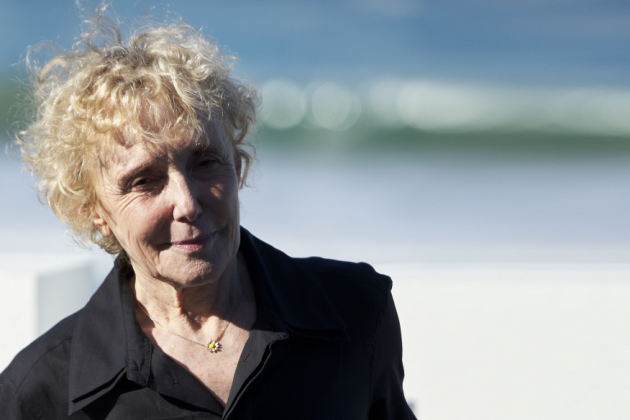
This year’s crop of filmmakers at the Cannes Film Festival don’t represent a new benchmark in terms of gender diversity.
Since becoming the first international festival to sign a gender parity pledge in 2018, Cannes has failed to make substantial progress in ramping up the representation of female directors in competition which remains dominated by male directors.
More from Variety
Cannes director Thierry Fremaux told Variety last week that he was aiming to “hopefully” have a “stronger presence of female directors” in 2022. But so far, it’s not looking like he’s achieved that goal.
At this point, there are only three films by female directors in competition out of 18 titles. Last year, four of the 21 titles were from female filmmakers. That matched a previous high of four female moviemakers from the 2019 edition.
This year’s competition boasts a handful of well-established veteran directors such as Kelly Reichardt, who was last in competition with “Wendy and Lucy” and will present “Showing Up,” another Michelle Williams-fronted film; the French-Italian actor-turned-helmer Valeria Bruni Tedeschi with “Forever Young,” and veteran helmer Claire Denis with “Stars at Noon.”
It’s interesting, however, to note that while female directors have been under-represented in competition they have largely outperformed male counterparts in terms of awards in recent years — save for the Palme d’Or which have only been won by two female helmers in the festival’s 74-year history, with Julia Doucournau’s “Titane” in 2021 and Jane Campion’s “The Piano Lesson” (shared with Chen Kaige’s “Farewell My Concubine”) in 1993. In 2019, three out of the four women in competition won prizes: Mati Diop won the Grand Prize with “Atlantique,” Celine Sciamma won best screenplay for “Portrait of a Lady on Fire,” and Jessica Hausner’s “Little Joe” won best actress for Emily Beecham.
It’s also worth noting that women won the top prize at all the major festivals within the last year. Besides Ducournau at Cannes, Audrey Diwan won the Golden Lion at Venice with “Happening,” while Jane Campion won the Silver Lion for best director for ”Power of the Dog,” while Carla Simón won the top prize at Berlin with “Alcarràs” and Denis won the Silver Bear for “Both Sides of the Blade.” Other key festivals such as Toronto and Sundance also saw female helmers take home the top prizes with “Yuni” and ”The Nanny,” respectively.
Cannes isn’t alone in failing to promote more movies from female filmmakers. Most major festivals in Europe have also failed to reflect gender parity in their competition lineups. Cannes organizers have explained the gap in representation by saying that there might not be enough female directors with the same pedigree as their male counterparts, an argument that has infuriated many in the creative community. There has been, however, more and more films by female directors within the Official Selection in recent years, especially in the Un Certain Regard strand which is dedicated in large part to emerging filmmakers.
If we look at the whole of the Official Selection, the progression of female directors is also insufficient. Although the roster has expanded throughout the years, the representation of women helmers has not followed the same path. There were 14 women directors out of 47 films in the Official Selection in 2019, compared with 28 out of 64 titles in 2021 and so far only nine titles out of 49 movies this year.
Best of Variety
Sign up for Variety’s Newsletter. For the latest news, follow us on Facebook, Twitter, and Instagram.




